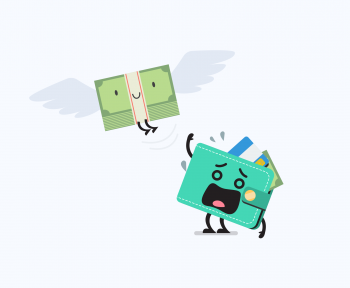The rise of smart contracts has changed how transactions are done in the world of digital finance. Smart contracts eliminate the need for middlemen by automating processes and making sure that the results are exactly as coded.
This means that businesses and people can get things done faster, fight less, and trust transactions more. One goal of the automation trend is to make things easier; another is to make systems that are impossible to break into.
Smart contracts make sure that agreements are clear, quick, and followed by all international financial networks by putting them in code. They can be used in many fields, such as banking and healthcare.
This shows how automation based on blockchain can make complicated interactions easier and open up new ways to grow. As more people use digital technology, smart contracts are expected to change trust by replacing old systems with clear, programmable ones that eliminate uncertainty and make things run more smoothly.
Join us in this blog as we explore smart contracts, their types, how they work, their relationship with blockchain, the role of smart contracts, and more in detail. Let’s start!
What Is a Smart Contract Example?
Real estate is one of the most common examples of smart contracts. You don’t need to hire a lot of agents and lawyers because a smart contract can automatically transfer ownership when you pay.
They are also used in crowdsourcing projects, supply chains, and insurance claims. These examples show how smart contracts can cut costs, speed up processes, and make sure that promises are kept without anyone having to do anything.
In supply chains, payments can only be made once the goods reach their final destination. After certain conditions are met, insurance payments may happen right away. The good thing is that there is no room for doubt because everyone can see how it works.
Smart contracts are used in voting systems, digital content royalties, and even sharing medical records. Each smart contract example makes the point stronger: when contracts are written in code, they can be automatic, clear, and fair. Their ability to do many things shows how far automation can go when it is built on strong blockchain principles.
What Are the Different Types of Smart Contracts?
Not all smart contracts are the same. They are split into different groups based on their purpose and scope.
- Automatic settlements, loans, and payments are all handled by financial contracts.
- Contracts that are based on data start actions when outside information is confirmed.
- Before a multi-signature contract can be signed, it must be approved by more than one party.
The most common type of smart contract in the cryptocurrency world is a financial contract. They make it easier to lend and trade. Data-driven contracts often connect to outside sources, like weather reports or stock market prices, to get certain results.
In corporate governance, where no one person should have complete power, multi-signature contracts are very important. Businesses can choose the version that works best for them by putting them together.
Smart contracts are designed to work better and need less human oversight. This division also shows that smart contracts can be used in many fields, including retail, logistics, and healthcare.
As more people use them, more types are being made. There are tokenized asset contracts for the art and real estate markets, as well as governance contracts for organizations that are not centralized.
This change shows that smart contracts are flexible frameworks that can be changed to fit almost any digital need, which means they are more than just tools for making money.
How Does a Smart Contract Work Step by Step?
Smart contracts work by following a specific order that makes sure everything is correct.
- Developers or other authorized people must first code the terms into digital form.
- Second, the blockchain network makes the agreement public.
- Third, the contract automatically goes into effect as soon as the coded conditions are met.
Complicated programming and the fact that you can’t change the blockchain are what make these steps possible. Solidity and other languages are used to write the coded terms. These languages are meant to be exact and hard to change.
Once you upload something to the blockchain, no one can change the rules without your permission. When the conditions for execution are met, actions like giving access or moving money happen right away.
These actions show how important blockchain technology is, as it makes sure that the contract goes ahead as planned without any changes. The result is certain, can be checked, and is not affected by bias or mistakes made by people.
This methodical process has led to the creation of decentralized applications (dApps), which let users talk to code instead of institutions.
This makes smart contracts even stronger. As more people use automation, new models are always coming out that show how it can change finance and other fields. Jeton‘s easy-to-use services can help you make international payments faster.

Can Smart Contracts Be Changed?
Smart contracts in blockchain are strong because they can’t be changed. They can’t be changed once they’re in place unless they were made to allow for upgrades. This builds trust by making sure that people can’t change or mess with the system.
This rigidity makes things very safe, but it also means that developers have to carefully check the code before signing a contract. So, tests and audits happen a lot.
Smart contract audits look at the code line by line to find any holes that bad people could use to get in. Some people use contracts that can be changed, but rules for governance are needed to decide when changes are okay.
This makes things more flexible without changing the fact that the blockchain can’t be changed. Developers often make governance tokens or proxy contracts so that communities can vote on upgrades. These tokens are both flexible and unchangeable. This balance keeps systems safe as they change to meet new needs.
There will probably be a mix of strategies in the future, with immutability at the center and carefully planned upgrade paths that keep things stable while also allowing for new ideas. Use Jeton for safe payment methods that make transfers clear and secure.
Is a Smart Contract on the Blockchain?
Every smart contract works right on the blockchain. This setting makes sure that everyone is open and responsible. It is not possible to change the agreements in decentralized systems while still making them visible to everyone.
A smart contract security audit is often done before deployment to make sure there are no security holes. This shows that smart contracts can be used safely in both business and personal settings.
Anyone can look at their history and logic, and they will always be there. This helps businesses earn the trust of their partners and regulators. People feel better knowing that agreements can’t be changed in private.
Blockchain is the most important part of this process because it turns smart contracts from simple digital scripts into agreements that can be used all over the world.
More sectors are using smart contracts, such as healthcare, supply chain management, and finance. This is making the need for government oversight and audits greater. This shows that even though the technology is strong, it must always be used carefully and in accordance with the rules.
Eventually, better tools and standards will make audits safer and more useful. This will make smart contracts an even more important part of the digital economy.
Can Blockchain Work Without Smart Contracts?
Blockchains can work without smart contracts, but they would not be as flexible. Blockchains would only be able to keep track of data without them.
The real power of examples of smart contracts is that they let people make automated, self-executing agreements that go beyond simple transfers. They make it possible for complicated applications like decentralized finance (DeFi), tracking the supply chain, and verifying digital identities.
Without smart contracts, blockchain would still be limited and couldn’t support more advanced forms of automation or dynamic applications.
- Blockchain would only keep track of who owns what without smart contracts.
- Blockchain can help with finance, supply chains, and identity verification thanks to smart contracts.
- They turn blockchain into a place where decentralized apps can be made.
These features show that smart contracts change blockchain from a simple way to keep track of things into a platform for many digital services. They open up new ways for businesses to be creative, from logistics to healthcare to even government services.
In short, smart contracts make blockchain stronger and more flexible because they let people and businesses use it in real life in ways that help them.
Are Smart Contracts Safe?
Safety depends on how things are designed and how well they are checked. Smart contracts are safe because of blockchain technology, but they are only as good as the code that runs them.
Contracts that are poorly written can leave you open to attacks, but contracts that have been professionally audited are very safe. Before deploying, developers use a lot of testing and reviews from outside sources to find bugs.
Also, a lot of companies need to keep an eye on deployed contracts all the time to look for strange behavior. This is because most contracts can’t be changed easily once they’re in place, so it’s important to find risks early.
More and more people are using formal verification methods, which use math to check that contracts work as they should. When combined with a strong security culture, these practices help keep money and data safe in the blockchain environment.
In short, smart contracts are safe, but only if the right steps are taken when they are being designed, checked, and put into use. This means that users can trust transactions more, and developers need to be responsible and open about how they write code.

Why Are Smart Contracts Important, and What Role Do They Play in Blockchain?
Smart contracts are important because they make things easier, more open, and more reliable. They cut costs, speed up work, and make it less likely that people will make mistakes.
In fact, smart contracts in blockchain make sure that agreements are safe from tampering and open to everyone. They are an important part of decentralized finance because they power lending, borrowing, and trading platforms that don’t need middlemen.
They can also be used for governance, letting communities vote and make decisions on-chain. Smart contracts are also the basis for tokenization, which is when real-world assets like real estate or commodities are represented digitally.
They make sure that ownership rules are followed, transfers are done correctly, and everything is clear. Blockchain systems would not have the automated execution that makes them valuable without smart contracts.
Their job is to make sure that promises made in code are kept automatically, without any problems or delays. This is what makes blockchain networks work well and be reliable.
Do Stablecoins Have Smart Contracts?
Yes, smart contracts are what make stablecoins work. They are programmed to stay stable by tying their value to things like fiat currencies. Smart contracts for stablecoins control the issuance, redemption, and transfers of stablecoins across blockchain systems.
This makes sure that users can see everything and know what the value will be. They are now necessary in the crypto market because they make trading and everyday transactions stable.
- Stablecoin contracts lock up collateral to support tokens.
- They control the supply to keep the peg with the value of fiat.
- By recording every transaction on the blockchain, they make sure that everything is clear.
These contracts are carefully made to make digital assets less volatile and more trustworthy. Stablecoins are a safe and useful digital currency because they combine the transparency of blockchain with the stability of assets.
Because of this dual strength, businesses and people who need predictability in a very unstable crypto market like to use them. Stablecoins show how programmable agreements can make the digital economy more stable and help digital assets become more popular.
How Do You Create a Smart Contract for Stablecoins in the Blockchain Ecosystem?
There are a number of technical steps involved in making a stablecoin contract. First, developers write the code that tells how tokens can be issued, moved, and redeemed. Then they test the contract in a safe place to find any problems.
A smart contract security audit is done before launch to make sure the system is safe from attacks. Finally, the contract is put on the blockchain so that users can use it. This structured process makes sure that everything is clear and follows the rules.
To explain this process further, developers must first choose the blockchain network where the stablecoin will work, like Ethereum or another platform that works with it. Then, they choose the type of collateral they want, such as fiat-backed, crypto-backed, or algorithmic.
Before going live, testing often means using testnets to mimic real-world conditions. Deployment makes the contract active after it has been verified. This lets stablecoins be issued and circulated.
Monitoring tools help find and stop strange activities after deployment. This cycle of making, checking, and watching over the system makes sure it stays safe, open, and in line with what users want.
Wrapping Up
The making of smart contracts is now one of the most important things that has ever happened in digital finance. They let transactions happen automatically without middlemen by putting agreements right into code.
This new feature makes it easier, faster, and safer for people to do business and handle money. They save money, get rid of unnecessary delays, and make sure that everyone can trust the results of agreements without needing a third party to enforce them.
Smart contracts make it easier for businesses and safer and easier for people to do business online every day. This technology’s rise shows how automation can change old systems of trust into processes that can be programmed, checked, and made more efficient.
As blockchain technology evolves, the use of smart contracts will only expand—making processes faster, safer, and more reliable. Platforms like Jeton are part of this shift toward smarter, more efficient financial systems.
With Jeton Wallet and Jeton Card, you can experience the convenience of secure digital payments and innovative financial tools designed for the modern world. Take control of your financial future today. Simplify your transactions, stay connected, and explore the limitless potential of digital finance.
Download the Jeton app via Google Play or the App Store now and start experiencing seamless payments wherever you are. Sign up for one app for all needs!



